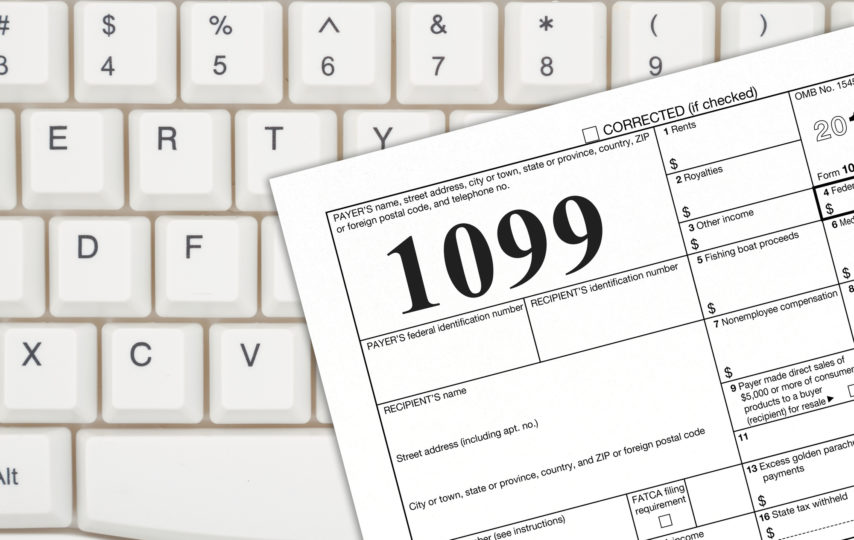In the US, the gig economy has grown by 15% since 2010. This means this industry has grown by 6 million people, and it’s only bound to grow even more, especially as technology advances. The pandemic has also made more people turn to gig work.
If you’ve been reconsidering work and want to go for something that’s not a 9 to 5, then you might be thinking of getting into freelance work.
In that case, you might be wondering: what is a 1099 employee? What do I need to do to be one? Read on to find out more!
What Is a 1099 Employee?
Calling someone a “1099 employee” is somewhat of a false title. This is because when you’re a 1099 worker, you’re an independent contractor. This means that you’re not hired on as a traditional employee who receives things like wages, salaries, benefits, etc.
Independent contractors are usually hired on for a relatively short period of time when compared to employees. Usually, they’re only there to help complete a project.
Because of this, 1099 workers sign a contract where they agree to work on certain tasks for a company. After that, they can either sign another contract with the current client or walk away to work on other projects.
Independent contractors are allowed to work with multiple clients at once. This means that so long as you feel like you’re capable of handling it, you can sign more than 1 contract at a time.
You’re Your Own Boss
The nature of being an independent contractor means you’re your own boss.
Of course, this comes with its perks. For example, you’re not restricted to a 9 to 5 work schedule. You can work however little or much you want, and it’s on your terms when those work hours (and days!) are.
This also means you don’t have to answer to anyone. You’re free to take any projects you’re comfortable with, and walk away from any that you don’t find suitable (so long as you haven’t signed a contract yet).
One of the biggest perks of being a freelance contractor is that you can also choose your own methods for doing a job. Whereas with a salaried job, you’re obligated to follow company policies and directions from your boss.
Considering you’re your own employer, this also means that you can hire workers under you to carry out work if you find that it’s necessary. This leaves you with more freedom as to who you work with.
There Are Some Drawbacks
In addition to the liberties you’ll enjoy as a freelance contractor, there are some downsides.
For example, income won’t be as stable as with a 9 to 5 job. You’ll have to work extra hard to line up project after project to ensure that you have no lapse in income.
It’s not always a guarantee that you’ll find clients after projects have wrapped up. This means you might experience random periods where you have massive amounts of money coming in while you have absolutely none in other times.
Along with no regular wages, you also won’t have benefits such as health insurance. Your clients won’t be responsible for paying into things like Social Security, Medicare, and unemployment. Needless to say, you won’t have a pension with your clients either.
You’ll also have to provide and keep up with your own tools and technologies. Depending on which industry you’re in, this can add up to significant costs over the long run.
How to Get Started as an Independent Contractor
Remember how you’re own boss? This means you’ll have to think of a name for your “business.” This will allow you to establish your brand and also do better marketing.
You’ll then want to talk to an accountant about the best way to set up your business. Depending on where you live, you might have to apply for a business license as well.
To make things easier on yourself, we highly recommend opening a business bank account. That way, you can keep all your personal and business finances separate, which will create less confusion and time wasted when it’s time to file taxes.
Filing for 1099 Taxes
Speaking of taxes, when it comes to 1099 vs W2, it’s a different process.
1099 state filing requirements are different, depending on where you live. There’s something called the Combined Federal/State Filing (CF/SF) program under the IRS. Not all states participate in this program, so ask your accountant for more details.
In general, you’ll need to file a Form 1099-MISC instead of a W2. You definitely need to file one if you’re earning more than $600 in 1 year from a client.
When it comes to freelancer taxes, it’s recommended that you save around 30% of all earnings in the year to pay off income taxes.
When working on a contract, none of the amount is initially taken out for taxes. Many newcomers then mistakenly believe that 100% of the money is spendable and then get a very nasty surprise come income tax time.
So it helps to be prepared and save throughout the year. By putting away a little of each contract, you’ll be ready once you have to pay taxes.
Become a Gig Worker
Now you know the answer to the question, “what is a 1099 employee” and more. Hopefully, this should make you feel more confident and secure about trading in your 9 to 5 for a freelance job.
While it comes with some additional responsibilities, being a gig worker can be extremely freeing. So if you’ve been looking for a change in your career, this might just be what you need for a refreshing start!
If you want to read more on being a 1099 contractor, take a look at the rest of our blog site now.













